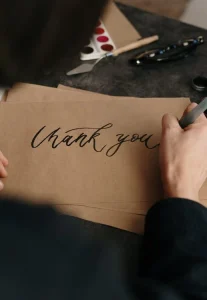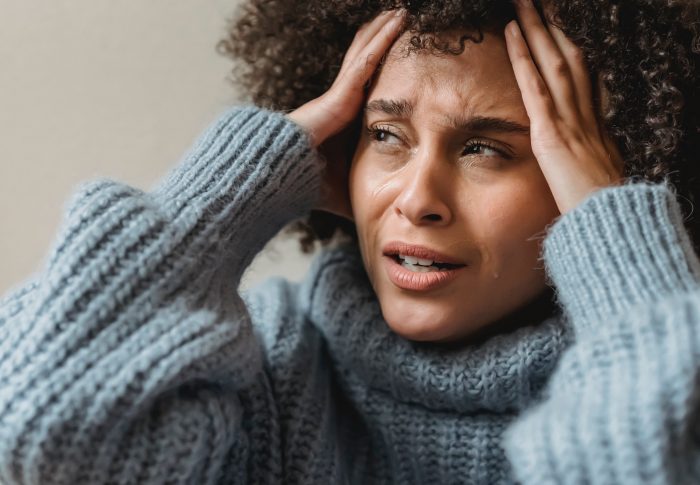
How do people react to an autism disclosure?
I’ve been publishing blogs about autism for just over a year. The first one was on World Mental Health Day 2020 in which I revealed I am autistic. It felt like one of the most important blogs I’ve ever published because it felt like a huge relief to tell people. Since then, I’ve continued publishing blogs on this subject hoping I’ll help more people. The autism community is very active and I’m incredibly grateful to have been welcomed into it! We share stories about how we’re treated and it’s really helped me to feel less alone.
“Coming out” as autistic can be liberating but also incredibly painful depending on the reaction you get; how people react can alter how you feel about the diagnosis and your identity; it can seriously impact your ability to speak up about your needs as well as crushing or boosting your self esteem and confidence.
The following are some reactions I received as well as reactions other autistic people got from their friends, family, colleagues or acquaintances:

“Well obviously!”
Catherine (UK)
People who thought I already had a diagnosis aren’t surprised I’m talking about it. This reaction is from people with some understanding of autism/neurodiversity. They know me, they see my strengths and understand my difficulties, just as they are, without judgment.
In some way, it’s been difficult to hear this as I wish I’d received the diagnosis as a child but females born in the 1980s simply weren’t diagnosed with autism. Masking has been the way we’ve coped. Females are often diagnosed with other things e.g. depression, obsessive compulsive disorder, personality disorders or eating disorders. It’s frustrating that we can spend so long in mental health services with so many professionals missing the diagnosis—this story is too common.
People who can “obviously” see we’re autistic are the caring perceptive individuals who’ve seen the pain beneath the mask.
“Are you sure? Have you been formally diagnosed?”
Julie (USA)
There are many people in the autistic community who aren’t able to get a formal diagnosis for all sorts of reasons. In some countries (America, as quoted above, for example) it’s a case of affordability—some insurance covers assessments, some doesn’t. There are other countries that simply don’t offer adult assessments. Some people choose not to go through, what can be an incredibly stressful process. Assessing adults requires specialist knowledge; if the assessor doesn’t have up-to-date adult assessment knowledge the process can add to an already traumatic journey.

I have been through the formal assessment process but I don’t consider myself any more or less autistic than someone who hasn’t. I was 100% sure I was autistic long before the 31 months I had to wait for the ‘formal assessment’! I’m incredibly grateful the NHS is free at the point of delivery but waiting lists are long due to chronic under funding and staff shortages. It took me a long time to find the courage to go to my GP; she went through a short assessment and from what I said, she felt an autism diagnosis was highly likely. I then had to wait over 2.5 years for the formal assessment with a psychiatrist!
I’ve been autistic my whole life, a formal diagnosis didn’t really make any difference to me!
I do understand when legal adjustments/allowances are needed, professional backing is required.
If you’re trying to enquire about the diagnostic journey to be supportive, there are better ways to go about it, for example: “I’m interested in the process you’ve been through to arrive where you are” or “How did you come to that realisation?”.
“But you don’t look autistic”
Helen (UK)
Perhaps people are trying to be kind but masking autism has lead to a lifetime of poor mental health. Saying “you do a good job not looking like ‘one of them’ ” is insulting. Autism doesn’t have “a look”—I’m proud to be part of the autistic community.
“You’re communicating this in the wrong way”
Dustin (Netherlands)

People with autism have difficulty with communication so we might not always do things the way neurotypicals would. People choose to communicate the fact that they have autism in all sorts of different ways. Some people will never tell anyone and that’s fine. I chose to share on my public platform because my hope is that I will help other people. Others will tell the people one by one or perhaps in small groups.
It can be really hard to share with people because we fear ridicule, stigma, discrimination, judgement, guilt and shame.
I’ve had to accept that I will be judged for doing this publicly but I believe in what I’m doing because helping people is my raison d’être.
“I’ve lost friends, they’ve blocked me on social media or they just don’t talk to me anymore”
Pat (USA)
It’s incredibly sad that people who learn they’re autistic will have people in their lives who don’t believe them or find the news too hard to hear so the way they deal with it is to walk away or just stay quiet when the subject comes up.
As an adult getting an autism diagnosis, I found it incredibly liberating. Finally realising we’ve been masking our entire lives, and we’re allowed to drop our mask and be our authentic selves feels freeing! Some friends and family will prefer the mask but that’s a blog for another day.
Some autistic people can end up very lonely, simply because they’re being their authentic selves; fortunately though, the autistic community, is an incredibly supportive place.
“Isn’t it just another label? What’s the point?”
David (UK)
While on face value this may seem true, it might help to read this blog about what a “label” can mean for some people. People who say “isn’t it just another label?” don’t understand that autism is so much more than a label!
When this was said to me I had to fast-forward through a lot of painful I-can’t-believe-this-person-doesn’t-understand-me tears. I managed to explain that a correct label makes all the difference, I finally know why every time I’ve recovered from my other diagnoses, I still didn’t feel right. I struggled with simple things and I felt like I was living a fake existence to please others… When I started reading about autism and autistic females in particular, it immediately felt like things made sense!
Autism isn’t just another label, it’s the way my brain works. Knowing who I am has greatly improved my sense of identity and my mental well-being!
“Thank you for sharing, it’s really helped”
Debbie (UK)

The number of people who messaged me about themselves, a loved one or someone they know who has autism has been really touching. This is because, as human beings we seek belonging and we want to share similar experiences with one another. The autism community is somewhere I’ve found acceptance. Having felt like an alien all my life, I finally feel I’ve found somewhere I can completely relax and be myself!
When we open up about our autism, and someone responds with “thank you”, it’s simply a sign of acceptance and this is all we ask for. Continuing the conversation with open curiosity is the best way for all of us to learn.
To those who “like” and “share” my posts, a massive thank you—this helps the information reach a larger audience!





Comments
I need to to thank you for this great read!! I absolutely loved every bit of it. I have got you bookmarked to check out new stuff you postÖ